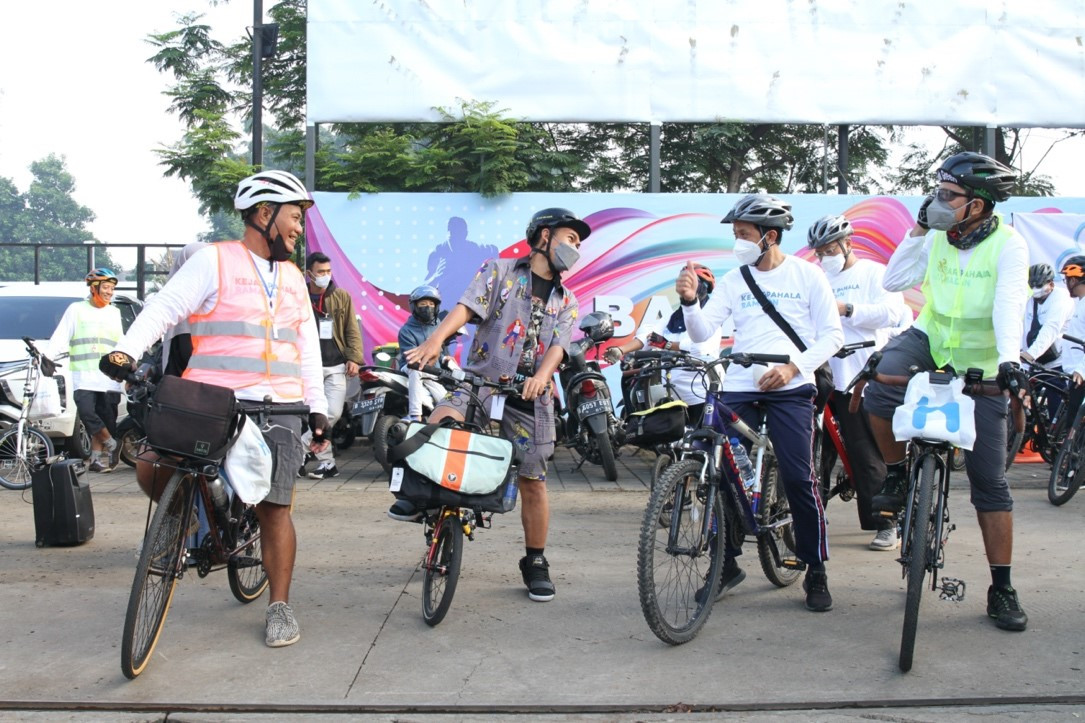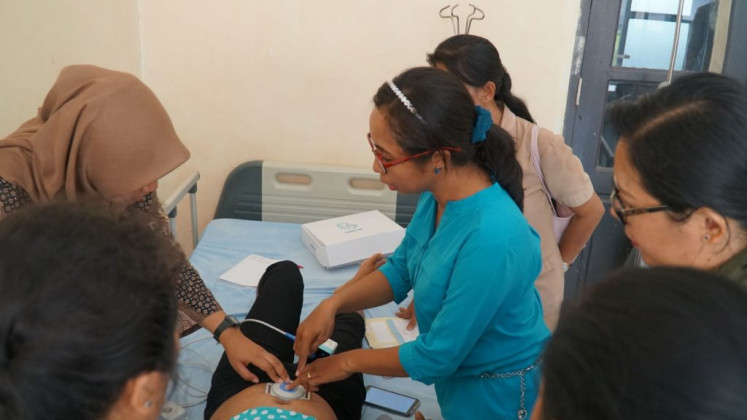Popular Reads
Top Results
Can't find what you're looking for?
View all search resultsPopular Reads
Top Results
Can't find what you're looking for?
View all search resultsIndonesia should strengthen accountability and transparency in social sector
Indonesia is also one of just five economies we examined in Asia that limit tax deductions for donations to organizations working in certain sectors.
Change text size
Gift Premium Articles
to Anyone
P
ublic scandals relating to the social sector tarnish its reputation and see donations to organizations dry up, regardless of their involvement in the scandal. One bad apple can really spoil the whole barrel. Articles like the one written by Muhammad Ersan Pamungkas and published on this paper on Aug. 2 may reduce trust in the social sector as a whole by lumping bad actors in with the vast majority of organizations working hard to deliver vital services to Indonesians in need.
As Pamungkas rightly notes, government strengthening of regulations can help to boost accountability, but this is not the whole story. While the World Giving Index names Indonesia the most generous country, our own Doing Good Index 2022 takes a more institutional view, examining the environment for doing good from a regulatory, fiscal, cross- sector and ecosystem perspective.
We find that Indonesia is “Doing Okay”, not yet reaching its potential in driving private resources toward social needs. So, while there is no doubt that Indonesian people are generous, we see a need for more institutional support to strengthen accountability and transparency, and for building trust in the social sector.
Accountability in Indonesia’s social sector can be addressed through several mechanisms.
Government signaling can help demonstrate trust in the social sector. This signaling could include improved tax treatment of charitable donations. Despite the 100 percent tax deduction rate on individual and corporate donations to charity, Indonesia limits the income eligible for these deductions to 5 percent, thus weaking the effect of the incentive.
Vietnam for example, offers a 100 percent rate and place no limit. Singapore offers a whopping 250 percent tax subsidy with no limits. Putting in limits sends mixed signals about the intentionality of government.
Indonesia is also one of just five economies we examined in Asia that limit tax deductions for donations to organizations working in certain sectors. Surprisingly, donations to environmental organizations are excluded at a time when climate change is having a tangible impact on the country and the region.
Government can do more to procure the services of the social sector. Only 18 percent of community organizations in Indonesia have government contracts, far below Malaysia’s 27 percent and Singapore’s 44 percent.
Government procurement from the social sector is mutually beneficial. Governments can benefit from the local knowledge and expertise of community organizations, which benefit from the income and legitimacy of being a recognized government contractor.
Another area in need of improvement is the enforcement of laws and regulations pertaining to the social sector. Our research shows that just 41 percent of community organizations in Indonesia believe these laws are always or mostly enforced, amongst the lowest in Asia. Consistent enforcement of laws and regulations is key to ensuring their efficacy.
In addition, the social sector needs to do more to communicate its activities and impact, helping donors to see how their gifts are spent. Charities that actively share their stories and highlight the value they bring to communities can help to counter public scandals and negative perceptions.
Social delivery organizations should have clear and informative websites that convey the value they bring to the community and the impact of supporters’ donations. Encouragingly, 62 percent of Indonesia organizations surveyed say they feel fully trusted by society, but there is room for improvement.
As the Doing Good Index illustrates, the infrastructure for institutionalized giving is still maturing in Indonesia, as in most of Asia. While donors may be tempted to abandon charities and instead try to give to those in need directly, supporting the social sector helps communities over the long term.
***
The writer is cofounder and CEO of the Centre for Asian Philanthropy and Society (CAPS).











